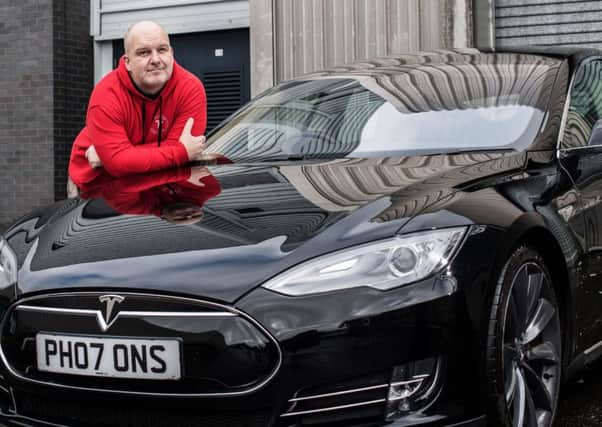Leader comment: How car parks will usher in electric revolution


Beneath the 14th century Akershus Fortress in Oslo lies a vision of the future – serried ranks of Nissan Leafs, Teslas and e-Golfs in the world’s largest public car park for electric vehicles. Thanks in part to the vast amount of hydroelectric power produced in Norway, the country currently leads the world in one of the biggest transport revolutions since the invention of the internal combustion engine.
Last year 52 per cent of all new car sales in Norway were either pure electric or hybrid vehicles and the government expects that by 2025 no petrol or diesel cars will be sold at all. In Scotland, ministers have set a target to “phase out the need” for new fossil fuel-powered cars by 2032, seven years later than Norway but still one of the most ambitious dates in the world. And car parks will be key in the coming transition.
Advertisement
Hide AdAdvertisement
Hide AdFor along with the upfront cost – electric cars are more expensive to buy but cheaper to run – and range anxiety, perhaps the main stumbling block for potential electric car buyers is the need to have easy access to charging points.
So while the plan to create an 18-space car park for electric vehicles only in Dundee may seem like a relatively small step, it is actually a sign of things to come because, as the number of electric vehicles increases, all councils will have to install more charging points on existing parking spaces. Gradually, over the next few years, petrol cars are going to find it harder and harder to park as more and more spaces are reserved for electrics.
The Scottish Government is also facing calls to levy a charge of workplace parking. If this is introduced but electric vehicles are exempt, it would provide further incentive to make the switch. The falling cost of electric vehicles and increasing ranges are also making them more attractive.
New car sales have now fallen for 11 months in a row, with diesels proving particularly unpopular following the emissions-fixing scandal. Demand for second-hand diesels has also slumped.
Eventually the market is likely to reach a tipping point when people realise they will struggle to re-sell a fossil fuel-powered car. This could produce a sudden glut of cheap second-hand vehicles unless the government of the day decides to take action.
That might be seen as a boon by some, but the new owners may face a frustrating problem – finding somewhere to park.